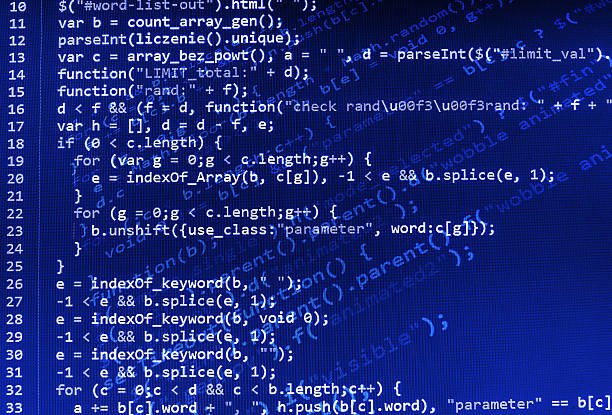Identifiers in C

Understanding Identifiers in C: The Building Blocks of Your Code
When you start your journey with the C programming language, you’ll quickly encounter the need to name various elements within your programs. From variables that store data to functions that perform actions, each of these needs a unique name. In C, these names are called identifiers. Think of them as labels that help you and the C compiler keep track of different parts of your code.
Without proper identifiers, it would be nearly impossible to write and manage complex programs. They are fundamental to how we structure and interact with our C code.
Rules for Naming Identifiers in C
Just like there are rules for naming a pet or a new business, C has specific rules for creating valid identifiers. Adhering to these rules is crucial for your code to compile and run correctly.
Here are the essential rules:
- Start with a Letter or an Underscore: An identifier must always begin with an alphabet (a-z, A-Z) or an underscore character (
_). - Subsequent Characters Can Be Letters, Digits, or Underscores: After the first character, an identifier can contain letters, digits (0-9), or underscores.
- No Special Characters Allowed (Except Underscore): You cannot use special characters like
+,-,*,/,$,%,&,@, etc., within an identifier. The underscore (_) is the only exception. - Case-Sensitive: C is a case-sensitive language. This means that
myVariableis different frommyvariableandMyVariable. You must be consistent with the casing. - No Spaces: Identifiers cannot contain spaces. If you need to use multiple words, you typically separate them with underscores (e.g.,
first_name) or by using camel casing (e.g.,firstName). - Cannot Be a Reserved Keyword: This is a very important rule. You cannot use any of C’s reserved keywords as identifiers. We’ll delve deeper into this distinction later.
- Maximum Length: While there isn’t a strict, universally enforced limit by C standards, most compilers allow identifiers to be quite long. However, it’s good practice to keep them reasonably short and descriptive.
Example
Let’s look at some examples of valid and invalid identifiers to make this clearer:
Valid Identifiers:
counttotal_sum_tempaverage1data_2023firstName
Invalid Identifiers:
1st_number(Starts with a digit)my-variable(Contains a hyphen)class(This is a keyword in some languages, but not a standard C keyword. However, it’s best to avoid names that might be reserved in future standards or other contexts.)for loop(Contains a space)sum&average(Contains an ampersand)
Naming Conventions
While the rules dictate what’s valid, naming conventions are about best practices for making your code readable and maintainable. A good convention makes it easier for you and others to understand what an identifier represents without having to guess.
Common conventions include:
- Descriptive Names: Use names that clearly indicate the purpose of the variable or function (e.g.,
user_age,calculate_area,max_students). - Camel Case: Start with a lowercase letter and capitalize the first letter of each subsequent word (e.g.,
studentName,totalScore). - Snake Case: Use all lowercase letters and separate words with underscores (e.g.,
student_name,total_score). This is very common in C. - Constants: Often, constants are written in all uppercase letters with underscores separating words (e.g.,
MAX_SIZE,PI_VALUE).
Choosing a convention and sticking to it within a project is key to writing clean, professional code.
Keywords vs. Identifiers
This is a critical distinction. C has a set of predefined words that have special meanings to the compiler. These are called keywords. Keywords are reserved and cannot be used for any other purpose in your program, including as identifiers.
Some common C keywords include:
int,float,char,double(for data types)if,else,switch,case(for control flow)for,while,do(for loops)return,break,continue(for control)void,struct,enum,union(for type definitions)auto,static,extern,register(for storage classes)
Keywords are for the compiler; identifiers are for you to name your own elements.
What Happens if We Use a Keyword as an Identifier in C?
If you attempt to use a keyword as an identifier, the C compiler will generate an error. The compiler interprets the keyword in its intended, predefined way and cannot understand it as a user-defined name.
Let’s illustrate this with a simple code example.
#include <stdio.h>
int main() {
// Trying to use 'int' as an identifier for a variable name
int int = 10; // This will cause a compile-time error
// Trying to use 'for' as an identifier for a variable name
int for = 20; // This will also cause a compile-time error
// Valid identifier usage
int myVariable = 5;
int another_var = 15;
printf("Value of myVariable: %d\n", myVariable);
printf("Value of another_var: %d\n", another_var);
return 0;
}
Explanation:
In the code above, the lines int int = 10; and int for = 20; are problematic. The compiler sees int and for as keywords. When they appear where an identifier is expected (to declare a variable), it doesn’t know how to proceed and flags it as an error. It’s like trying to use the word “the” as a name for your dog – it’s a functional word with a specific purpose.
To see the error: If you try to compile this code, you’ll get an error message similar to this (the exact wording may vary slightly depending on your compiler):
error: expected identifier or '(' before 'int'
int int = 10;
^
error: expected declaration specifiers or ‘;’ before ‘for’
int for = 20;
^
This clearly indicates that the compiler recognized int and for as keywords and couldn’t use them as variable names.
Demo:
Let’s try to compile and run a corrected version of the code with valid identifiers.
Input:
#include <stdio.h>
int main() {
// Valid identifier usage
int myVariable = 5;
int another_var = 15;
// Using a keyword 'int' just for its intended purpose (data type)
// and then declaring variables with valid identifiers.
int number_one = 10;
int number_two = 20;
printf("Value of myVariable: %d\n", myVariable);
printf("Value of another_var: %d\n", another_var);
printf("Value of number_one: %d\n", number_one);
printf("Value of number_two: %d\n", number_two);
return 0;
}
Output:
Value of myVariable: 5
Value of another_var: 15
Value of number_one: 10
Value of number_two: 20
In conclusion, understanding and correctly using identifiers is a foundational skill in C programming. By following the rules and adopting good naming conventions, you’ll write code that is not only functional but also clear, maintainable, and professional.
Do you have any examples of unique identifiers you’ve used in your C projects? Share them in the comments below!


